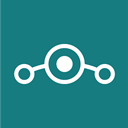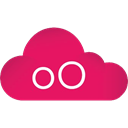Unleash Your Desktop on Mobile: The Best Maru Alternatives
Maru promised a revolutionary way to integrate your mobile and desktop experience, transforming your smartphone into a full-fledged desktop when connected to an external display. This innovative concept aimed to provide seamless productivity, allowing you to transition effortlessly between mobile and desktop environments. However, for various reasons – be it specific feature requirements, platform preferences, or simply seeking more robust or community-driven solutions – users often look for a reliable Maru alternative. This article explores the top options that offer similar functionality or cater to the same need for integrated mobile-to-desktop computing.
Top Maru Alternatives
Whether you're looking for a free and open-source solution, a specialized emulator, or a complete operating system designed for convergence, there are several excellent alternatives to Maru that can help you achieve a desktop-like experience from your mobile device or through software emulation.

Android
Android is a free and open-source operating system that serves as the foundation for many mobile devices. While not a direct desktop convergence solution like Maru out-of-the-box, its underlying flexibility and vast app ecosystem make it a strong contender for a Maru alternative. Many Android devices, especially newer flagship models, support desktop modes (like Samsung DeX) or screen mirroring, allowing users to connect to an external display and run apps in a desktop-like environment. Key features include ARM support, Google Calendar and Drive integration, and a Linux-based kernel.

LineageOS
LineageOS is a free and open-source operating system based on the Android mobile platform, serving as the successor to the popular custom ROM CyanogenMod. As a Maru alternative, LineageOS offers greater customization, enhanced privacy, and a security-focused approach, making it ideal for users who want more control over their mobile experience. While it doesn't inherently offer a desktop mode, its open-source nature allows for community development of such features or seamless integration with third-party tools that provide desktop convergence.

Android-x86
Android-x86 is a project that ports the Android open-source project to x86 platforms. This free and open-source operating system allows you to run Android on conventional PCs, including virtual machines like VirtualBox and VMware Player. As a Maru alternative, Android-x86 doesn't provide phone-to-desktop convergence but instead brings the Android experience directly to your desktop hardware, making it a great choice for those who want to use Android apps and interfaces on a larger screen without relying on a mobile device.

MEmu
MEmu is a free Android emulator for Microsoft Windows devices. While not a direct hardware-based Maru alternative, MEmu offers a lightweight solution for bringing the Android experience to your Windows desktop. It's particularly useful for developers and users who want to run Android apps on a PC with features like virtualization and workflow automation. It provides a full-screen Android environment, allowing for multi-app use and a desktop-like feel for mobile applications.

Ubuntu Touch
Ubuntu Touch is a free and open-source operating system for mobile phones, based on Linux. Originally by Canonical and now developed by the UBports Community, Ubuntu Touch is a robust Maru alternative focusing on privacy and a true GNU/Linux experience on mobile. It features a unique user interface with gesture support and offers convergence capabilities, allowing users to connect their phone to an external display for a desktop-like environment, much like Maru. It also supports running Android apps on desktop via Anbox, providing a versatile solution for productivity.

Google Chrome OS
Google Chrome OS is a free, Linux-based operating system designed by Google, primarily for web applications. As a Maru alternative, Chrome OS offers seamless integration with Google services and, importantly, the ability to run Android apps directly on the desktop. This means you can have a full desktop experience with access to the vast Android app ecosystem, making it a compelling choice for users who want productivity and mobile app compatibility on a laptop or desktop form factor.

Phoenix OS
Phoenix OS is a free personal computer operating system based on the Android platform, primarily designed for smart tablets and laptops. It runs on Windows, Linux, Android, and Android Tablet devices. As a strong Maru alternative, Phoenix OS brings a desktop-like experience to Android, complete with a familiar start menu, multi-window support, and file management, all with a Material Design aesthetic. It supports OTA updates and can be installed on various hardware, offering a versatile desktop Android experience.

Replicant
Replicant is a free and open-source distribution of Android that prioritizes 100% free software. It is an excellent Maru alternative for users deeply concerned with privacy and security. While it focuses on being a completely free mobile OS, its Android base means it can be adapted for desktop-like experiences, especially if paired with external display capabilities available on some devices. Replicant offers a rooted environment and a strong emphasis on user freedom and data protection.

Remix OS
Remix OS is a free and innovative Android-based operating system engineered for both mobile and desktop devices. It's a highly capable Maru alternative, offering a true desktop experience from Android, including multi-window support, a taskbar, and file manager. Remix OS can be booted from a USB drive, making it portable, and features Google integration and an integrated Android emulator. Its lightweight design and system requirements make it accessible for a wide range of hardware, effectively blurring the lines between mobile and desktop computing.

Genymotion
Genymotion is a powerful Android emulator primarily designed for building and testing Android apps. While a commercial product, it offers a robust solution for developers and can serve as an indirect Maru alternative by providing a high-performance virtual Android environment on Mac, Windows, and Linux. With 20 pre-configured devices and the ability to create custom ones, Genymotion allows users to experience Android on a desktop with seamless integration, offering a different approach to desktop-like Android productivity.
Choosing the best Maru alternative depends on your specific needs: whether you prioritize open-source freedom, seamless desktop integration, cross-platform compatibility, or a pure Android desktop experience. Explore these options to find the perfect solution that aligns with your workflow and hardware.